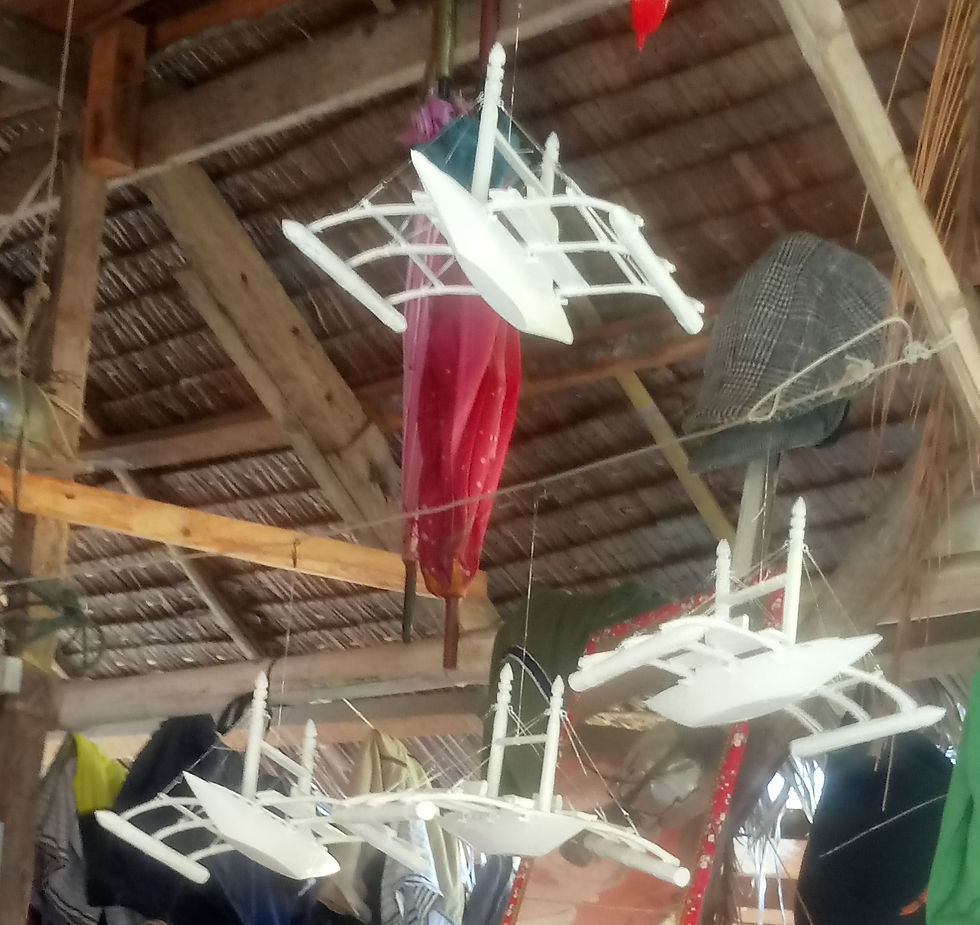WeGen Transforms Lives In Pamilacan by Providing Clean, Safe, Sustainable energy
- WeGen Social Transformation

- Oct 30, 2020
- 2 min read
Ruben Jo, 57, makes a living from renting out a motorboat to neighbors who take visiting tourists out to see the turtle nests and the spots where the whale sharks and dolphins congregate early in the mornings. Sometimes he operates the boat and goes around giving island tours.
Ruben’s formal education stopped at second-year high school, but he became sufficiently skilled to become a construction worker. He was also able to buy and upgrade his own boat after he got his share from the sale of a parcel of land owned by his family in Bohol. He earns an average of P1,600 per three-island tour. Every month, he is able to get at least six tour deals.



With the increased access to electricity in Pamilacan brought about by WeGen's donated solar PV system, Ruben has been able to take on another source of income – souvenir making. He builds scale wooden replicas of the motorized fishing boats that line the Pamilacan beachfront, as well as wooden dolphins, whale sharks, fish, and turtles, and he sometimes sells them on commission to neighbors who work at the resorts His materials are mostly free-- driftwood, and leftover wood (molave or mahogany), and bamboo that his neighbors have discarded after building their own fishing boats.
Before the 24/7 electricity, he relied on traditional carpentry tools to make his souvenirs. “It’s not easy because I’m not formally trained to carve wood or make souvenirs – I’m self-taught. I used to use only traditional tools like the saw, sander, and hammer. It took me longer to make souvenirs: for instance, polishing and smoothening the bodies of the dolphins or whale sharks took hours because I only used sandpaper. Putting holes in the boats or connecting small parts was also hard because I had to be very careful when using the hammer and a nail. I could easily damage what I was making,” he said.

Because of solar electricity, he can now an electric saw, electric drill, and electric sander. Instead of producing one of two dolphins or whale shark models a day, he has doubled his output. For the scale boats, it used to take him three to four days to build just one using hand tools; now he can build one a day.
“I earn an additional P500 to P700 every time I sell a souvenir,” he said.
Ruben says that even if it’s just a hobby, it still brings income. As for their electricity bill, it used to be P300 a month, but now it’s pegged at P600. The appliances that consume the most electricity are his television, DVD player, and refrigerator. They used to have a freezer, but because they didn’t use a voltage regulator, it malfunctioned during a power surge way back in May 2019 when the island had its fiesta and consumption for households was very high.
“We’ve gotten used to having electricity all day. We’re able to do more with daytime electricity – we’re more productive, and we have more opportunities to earn,” he ended. #





Comments